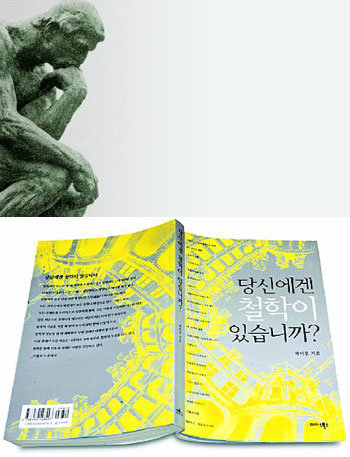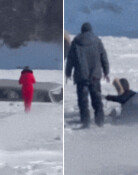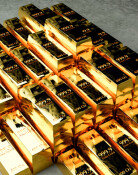Live Well

Jeong Mong-ju, who pledged allegiance to the Goryeo dynasty and was assassinated at Seonjuk Bridge, and Lee Bang-won, who performed the assassinations, gained hold of the throne and secured it for their descendants for the next 500 years.
Which among the two were wiser?
Even during the Korean War, some were killed either by communists or the Korean army by being too smart or too upright, while others who were not so bright or who were realistic lived on to become village heads, had children, and attained fame.
In todays fiercely competitive world, where survival of the fittest is the rule, the book that is written by a senior philosopher, The Pain of the Survivor, is baffling.
Instead of feeling pride for the persistency of our genes, the author reflects on the degree to which we could have survived such hardships, how the genes of the bacteria that were the origins of life were competitive, how fiercely and cunningly our ancestors employed in survival, and how thick our skins were.
Though we should feel pride as winners of the race for survival, the feeling of discomfort and embarrassment of the survivors is where this books philosophy builds from. Humans are moral creatures that cannot be explained merely in biological terms. The important message is not to exist and procreate like cockroaches, but to reflect on how to exist by achieving a spiritual dimension. In living, no one is free from the question of how to live properly.
This book is a philosophical essay written by a professor emeritus of Simmons College in the U.S., also a visiting professor of Yonsei University, which discusses common issues including how to live properly, where and with whom to live, and the outlook on death. The author selected 18 pertinent topics on how to live a life of action, and entices his readers to reflect upon his topics.
Readers who were expecting the author to provide a clear answer of how to live well would be disappointed. It may be because the book raises questions rather than providing answers.
The author, who has studied philosophy for his entire life, insists that even religious texts and classics of Western philosophy do not release us from our search of the meaning of our existence, by stating that humans are destined as wanderers. To what extent of evidence can one judge the answers provided by the religious texts and the classics, and to what relevance do such overreaching answers have when human life is determined by minute and specific details?
Readers who have attempted and failed at numerous forms of self-help and mind-emptying as advised by meditation books will find themselves nodding at the authors words such as the statement Though Buddha was correct in pointing out that the root of all suffering is in attachment to self, it is impossible to forego this attachment. The author continues, No life forms can exist without attachment of some sort, and speaks reflectively on our nature, exemplified by the person who, immediately after cremating his son, would look for something good to eat and start worrying about tomorrow.
Though explained in easy terms, to read this book well it is necessary to read attentively from the beginning rather than selecting chapters by topic. This is primarily because questions and thoughts will continuously pop into the readers minds.
The question of how to live properly is an examination into the values that one should pursue, as well as an inquiry of existentialist choices and social principles, which delves into ethics and morality. In perusing the book the readers can, as the author mentions, understand that philosophy is not discourse to complicate simple matters, but rather to extract oneself from preconceived notions and examine the subject matter as it is.
By following the authors questions on individual existentialism and the qualities of existence as required by ones society, the readers inevitably come to reflect on whether I am living out my life well. It very well may be that the answer could be found within the context of the question. Observing the readers as thus, the elderly philosopher would smile and say, You too have launched into philosophical speculation!
Hee-Kyung Kim susanna@donga.com







